Cage Dunn's Blog, page 84
November 26, 2016
The Moment
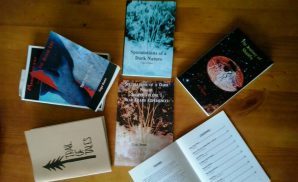 The Liminal moment, that is. The space of time between the commencement and the conclusion. The liminal moment of the story.
The Liminal moment, that is. The space of time between the commencement and the conclusion. The liminal moment of the story.
That’s where I am. Back in the rites of passage, the ritual, that is the outline of plan and shape, the structure, the elements as they combine to make it real. From the subliminal to the liminal to . . . the end. Final. Completion. Nearly there.
First, finish what the task requires for this project. Add in the missing ingredients. Next, go back and fix the first part of the lead-in to this project. Again.
Yes, I know. Stop messing. But it has to be the best it can be. Doesn’t it?
So, today is short. Life is short. Story is work. And work is on.
Have a great Sunday – see you next week (with a new, complete, story in tow – maybe even two).


November 25, 2016
Same, but Different
Do you want to learn something? I do. I always want to know as much as possible in the short period of time I have while I look into [whatever it is]. When I’m writing, the first point for me to do ‘research’ is the structure – the outline of the story.
And this time, I learned about the true structure of that blueprint. I did.
So many books, so many discussions, so many ideas – they all say the same thing, but different. And I thought I understood. I did. And I did all the requisite reading and laying out and putting it together. Of course, I didn’t really understand. The results weren’t what I wanted them to be, but it was too hard to go back to fix them to be what I had planned for, structured for, written for.
Why? Because I didn’t really understand STRUCTURE. I may be in the first throes of another love affair with the world of ‘writerly nous’ but I think now I might be well on the way to a solid understanding.
Structure is the emotional journey of the story. It is the count of beats within each section (that means Act) where the emotional levels ramp up or down, where the scenes become more or less dramatic (to the character) as they make decisions to go with or against the flow.
A character decides, and doesn’t get carried along for the ride. A story is an emotional investment – for the character and the reader.
I read two [library] books last week (and now bought them for the keeper section of my library): Save the Cat (Snyder) and Story (McKee).
Both have been read multiple times in the last few days as I get my head around how well they’ve written the lesson.
And I learned how to fix my structure issues! I have. Now I just have to do that! Fix them.
Oh, and the Bear Group – what did they come back with? Issues with Structure, how the journey is laid out, why the MC has to decide to do this or that, the close personal element of ‘take me on a journey’ and what that journey shows the reader about (1) the person, (2) the world, (3) the problem. Structure.
So, if you want to learn about structure or story, read those books. They’re available, but there’s a funny thing – you don’t see them for sale in secondhand places, not even online. When people buy these books, they don’t get rid of them. Ever. That tells us something, doesn’t it.
Get these books if you want your story to be stitched together like a bespoke suit.
***
Yes, I had read the Snyder book previously; I took notes and wrote them up with three senses so I wouldn’t forget, and then I got on with writing. And that’s the other secret – you can’t understand these things unless you’ve already done some work, figured out that there’s something missing, some piece of effort that needs more than the senses – it needs completion that isn’t fulfilment; it needs the sense of failure that comes from a final product that isn’t a finished product. The step beyond a simple structure to an architecturally brilliant concept. Concept.
In the last 12 months (or so), I’ve completed 5 mss. 7 if you count the partials. 9 if you count anthologies. But something was missing.
If I hadn’t done all that work, would I recognise what was missing when I saw the lesson again? Probably not. I’d go on thinking I understood, because I did understand. I understood the words and the placement of ‘things’ but without the effort expended in the creation of these pieces, I wouldn’t have come to understand the difference between architect and builder. I am now a builder and an architect. I understand structure. Structure.
As someone who has built more than the one house, I understand the concept of the architect.
I can go on knowing it was all worth it – and I won’t give up. That the next one will be better, will be more . . . everything.


November 23, 2016
The Wings Are Spread – Ready to Fly
The Narrung Sagas, Book II: A Dragon Dream (copyright Cage Dunn, 2016)
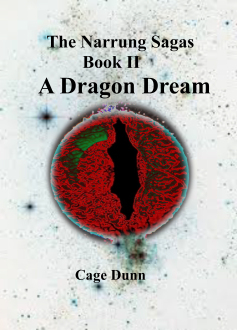
It will be out soon. Nearly ready to have those dragons spreading their wings and flying in the world, along with Shadow and Pax and . . .
It is the level of anticipation I feel as the project comes to an end. It’s like seeing a child move off into the world as a ‘proper’ adult. Exhilarating. I stand (or sit) breathless, as each stage unfolds, as it gets closer and closer to ‘the end’ and my breath hitches and the last words go on the page.
Well, they’re already there, but the process of ‘now’ – the final editing and proofreading stages, are almost over (almost is a thing that’s a bit flexible: one or two weeks, shrug, or maybe one or two days, who knows?).
It will be what will be; it is what it is.
At the beginning of a new project, it’s excitement of a different lure. Now, near the end, it’s something more profound, a depth of feeling that can only come with the satisfaction of knowing you ‘did good’ for the kid.
We’ll see, on that score, but it feels good; it feels great.
And now I may have to go back to finish off the other major WIPs that have sat in the background, waiting their turn – Again! Like The Third Moment – although it has done some good while it waited – it has been restructured! Not on paper yet – a structure plan on screen and in my head. And that’s a good sign that this one is at or near the end – I’m already dreaming of the next piece, the next life, that comes from story.
And there’s that anthology for The Once Lost – several shorts completed, many more still to be constructed.
And the A-Z of stories (this is the one where I grabbed an interesting word and made a story from it) – should that become another anthology? Am I doing too many shorts?
No. From the shorts come the novels. Truly. An idea comes in a short moment: a scene, a person in a predicament, a moment in time that provokes something, an emotional burn that needs some form of representation.
Each of the shorts could become a longer story, could burst forth like a supaNova, a burst of brilliance and depth – and distance. Once sighted as a long, it must be carefully hooked, brought closer and closer to shore, teased and cajoled into joining in the game of Story.
See, there I go again – off into that world! Bye! [‘cos, first I have to finish what I’m doing, don’t I?]


November 21, 2016
A Task
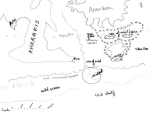
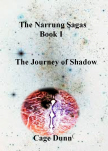
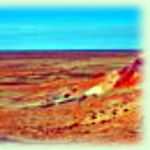
The smell of burnt tar and the smoke of charred bones assaulted the air and stung Pax’s nose. Iranisa’s breath blew aromatic hot air across the camp-site; ash and dust and small rocks moved with each exhale.
“Do you have to do that?” said Gheis. “We’re going to do what you asked, but we need to plan – and to eat.
Do you know where there’s any food?” He stood up and dusted the camp-fire ash from his tunic. “No. I didn’t think so. Well, we can’t do anything until we either find food, or food finds us. Obviously, we are not as important to dragons as dragon needs are to dragons. We’ll just starve while we go out hunting for the things you want – things we can’t eat!” He stalked off; huffs of dust followed the stomp of his sandals. A cloud enveloped him as he shook out his hoochie.
Pax looked at Iranisa.
“Do you know where we find these things – these minerals you want?” She stood and walked towards the recumbent dragon. The glitter and glow on her scales was like sunset over crystal and salt. The huge jaws rested on what would be a front leg – if it were real. She seemed almost real, but the landscape on the other side of the dragon was still clearly visible.
“I can sense where the deposits are, almost like a smell; however, I cannot sense it until I am above it. You use medicine, and part of your medicine is the use of oils from the essence of flowers?” Iranisa asked. Pax nodded.
“This ‘essential oil’ is used because of the strong aromas?” Again Pax nodded.
“It is similar. A dragon has a particular signature that resonates with a particular mineral, or gem. If a dragon is close to their resonator, they can sense it. As you would smell the strong odours of your plants. It is the smell of our essential element.” Iranisa shook her head and flicked her tail. Rocks split and scattered tiny shards of stone around the clearing. Pelted skin already raw and sensitive.
Pax yelped.
“We need it. Everything resonates with something else, and dragons resonate to the acoustic strength of minerals. Mine are diamonds and crystals and salt – therefore, my colours reflect this.” She shimmered a wave of rainbow colours along her back and flank. Shivers of light ran through the air where her scales intersected with reality. A deep sigh. More dust eddies.
“It is more than that. To absorb the energy from our resonators enables our magic. No symbiotic mineral means no magic. No magic means we live the life of any beast, not as a real dragon. We need our resonators to give the full extent of music to our song.” Iranisa started to thrum; the gong notes an echo in the still air, cut the chill into shards that fell as tinkles of sound onto the sand. Pax slid into the music.
She had to stop it; turned in a full circle to avoid the glide of sound that swept a net over her mind.
“Please don’t trap me,” she whispered, even though she longed to let go and be absorbed by the sound, and the feel of the sound; to go to the place of harmonies; to be one with that sense of wholeness. But it felt like a death, too, as told to Pax by the people she’d nursed back from the very edges of life. She’d questioned Iranisa about why they should bring dragons back if they, the dragons, were only going to eat them: her people, her creatures. The animals and people she healed.
Iranisa laughed. Well, it felt like a laugh, the rumblings and snorting of a dragon that threw waves of humiliation back at her question. Pax felt herself redden; her face tingled with the threat of tears. The humiliation she felt at the hands of the bullies all through her life – until Shadow stepped in and stopped it. She straightened her back, steeled her resolve.
“Would you promise not to harm us if we help you?” Pax felt a cold lump in her stomach, but if Shadow could ask promises of a dragon, why couldn’t she?
“Our food is magic; our magic is energy from our resonators; our resonators are part of this world and no other – that we know. We would not have to eat you if you find our resonators.” Iranisa’s response felt like truth; however, Pax was afraid, very afraid. The promise Iranisa made was to Shadow, not to her, not to Gheis.
“I will not harm you. I will not harm him. I am not a taker of life unless it is necessary. Have you done a thing that was designed to annoy me?” Pax shook her head emphatically. Iranisa lowered her head again. “I could claim you, mark you as a keeper, however, I see your life will go a different way. You have your own path – a difficult path, but it is your own, and by your own choice.”
Pax let out a sigh. She didn’t want to be a dragon keeper, whatever that meant. She wanted to be a healer, a teacher, a carer. She was only here because everyone in Narrung was schooled through the military academy; all children needed to be capable of being soldiers. All the other guilds were secondary to defence. All the citizens of Narrung had to protect their land. Shadow was the best student of the martial courses, so Pax chose to be part of her team, knew they had the best chance of completing the set tasks and going on to graduate. And never having to do it again.
That was how it would have been, if Pax hadn’t been seen – heard – by the shepherds. She’d failed Shadow. Failed her best friend; her only friend apart from Gheis, and Gheis was her friend only because she saved his life. Pax was confirmed a place with the healers once she passed this test; to study further, to become a master, and to heal. She was a good healer. That was what she wanted from her life. Not dragons, not rocks. Not impossible tasks.
“And your colours – do they get stronger after you, um, absorb these elements?” She watched the colours spiral in flashes and washes over the dragon. The movement mesmerised. She had to keep her mind clear, keep her eyes averted from the swirls.
“My true colour is blue. I was created as blue. When we found we could feed our magic with our resonators, we discovered how to change our colours to reflect them – in that way, we give thanks to the resonators. So we reflect our resonators, regardless of the colour we were created with.” Iranisa hummed again. The breathy sounds made the sand eddy and swish.
“You were created?” Pax frowned. “You mean you were born blue?”
“We were created.” Iranisa’s voice and body tensed, the almost-muscles contracted tightly, and smoke dribbled from her nostrils. “We were created as play things.” She stood and unfolded her wings from her back, stretched them to full length. They didn’t cast a shadow. Pax ducked anyway.
“We were created from Astarii, and creatures that no longer exist, and,” she turned and looked down at Pax from a great height, “the blood of humans.” One sweep of her wings took her into the air; debris splattered Pax as she rose. Blood trickled down one leg. Pax ignored it. It was one of many; something she would deal with later.
Iranisa’s voice drifted back.
“I can sense something.” A tinkling sparkle in the sky and she was gone.
“Never ask a dragon anything about themselves,” she muttered, as she hefted her pack onto her shoulder. “Never ask a dragon anything!” She stomped over to Shadow and Gheis and waited as they loaded their packs.
Today they would head directly north, to Ulamba. There was no time to go to Lake Teeni first. Pax had looked forward to seeing the lake; swimming; having fish to eat. But the dragon said they go to Ulamba, and Shadow said that’s what they’d do. Gheis argued, of course. And Shadow laid out the order of hierarchy – the leader would say what, would say when, would say how. So now they were going through the hottest, driest, rockiest landscape where there would be no food, no water, and no stopping. And to note any areas where these bloody minerals would be!
The words spoken by Iranisa told them of the task.
“To go beyond Narowi to Moolanda; to find the gildenbeast in the shape of a wizard; to kill the wizard and return to Narrung with the stone from his heart.” The words sounded simple, like a child’s game, and was all she gave them. What does a gildenbeast look like? What does a wizard look like? They knew of wizards, but in her mind, Pax saw only a man dressed in funny robes and carrying a lightning stick. Was that the sort of wizard they were looking for? Just a man? And why did they have to kill him? And not just kill him, but cut out his heart? There wouldn’t be a stone in his heart. She’d cut up bodies, knew what was in them, how they were put together. In all her classes with bodies of men and beasts, she’d never known a rock or stone, even tiny, to be in a heart.
There was no such thing as a gildenbeast, so she wouldn’t even consider that problem.
Pax had dreamed of the Narowi massif. In the dream, they were on the other side, in a world of green and damp, and smelly wet things, and birds brighter than sunsets that flashed through a dark canopy of trees – and huge, toothy creatures. Although, now she’d seen a dragon, even a ghost dragon, the toothy creatures were not huge at all, just big enough to swallow her whole and still have room to spare in the cavernous gullet.
No-one from Narrung had ever returned from Moolanda, the far side of Narowi. Even the island hopper people, the Yudgee, didn’t fish near the coast, and they never landed on the shore. They said the place was full of death, and ghosts called the unwary in to feast on them.
Just stories.
The camp fire story-lines played in her mind, pictures of demons and Mokoi conjured like magic from the words to haunt her now. Or was it just stories to stop people from trying to get there? Could it be a good food source? One the Yudgee kept secret, for their use only? No, the H’Rucca stories were all a form of truth message.
The words didn’t always make sense, and sometimes the words or sounds were used in a context different to the way Pax used. Lore was like that – it encompassed the whole of the culture: the song, the story, the journey; and the lesson, for yesterday, today, and tomorrow – all at the same time. If she was ever initiated into a tribe, she wanted to study with a song-lorist, to learn how the message could be understood even if the words were different in meaning for each song.
The H’Rucca culture was a living thing, practiced by the whole of the community as a daily practice. They were conscious of who they were through what they did, what they said, what they sang, and what they connected themselves to: the land, the animals, the people. She would love to be a part of the whole, as she had never felt in her life.
Her father died at sea; she was not even five years old, and as much as his death affected her, her mother’s actions after his death, the way she didn’t even acknowledge Pax as her own child, that hurt more, and still did. Pax was alone in the world.
Shadow would leave her one day; Gheis would leave her one day. She would be alone again. The dream for her life was to surround herself with people, to become someone who was needed, wanted, maybe even loved.
A protruding rock in the soft sand tripped against the edge of her sandal. She gritted her teeth, concentrated her effort to lift each foot higher.
It was easy for the others, they could shuffle-run forever, but Pax was heavier, more solid, and it took a lot of effort to keep up. She would never let them know that. She would not be the one to hold them back. She would not do anything to cause more friction.
Copyright Cage Dunn 2016 – an excerpt from ‘The Narrung Sagas, Book I: The Journey of Shadow’
***
Book II: A Dragon Dream has been returned by the Bear, Ted, One for the Use Of Reading Group and is now under ‘reconstruction’ as advised by the story surveyors!


November 19, 2016
Visible – Invisible?




The word for the day is ostentatious. What does it mean? – marked by a vulgar display of wealth and success designed to impress people. I’m not so sure about that (it may have been how it was defined for the 20th C, but now?); I think it’s more along the lines of: a vulgar display designed to impress people (see? without the wealth bit – because everyone/anyone can pretend to wealth, can’t they?). That means it can include the people who are desperately in debt, but can still float the mask of richness and gaudiness based on access to credit and online shopping and multiple personalities to display on sites and posts.
The ostentatious bit is the peacock attitude – put it out there for the world to see, because now the world CAN see you: in the shopped photo, in the head-chopped evening wear from someone else’s body shot, in the shadows of the softened and refined mannerism of words used to present – the masks are so much more than a single entity, a single person.
The ostentatious person can now be a multiple-personality with multiple masks and the WHOLE WORLD can see them. Famous, important, lots of hits and friends and . . .
The modern form of ostentatious is the persona who presents the display of vulgarity and passes it off as class, or fact, or the whole purpose in life.
Nothing personal or factual; nothing solid or substantial; not a mirror or a reflection of anyone or anything – a front that person would like to believe isn’t a fabrication. It is a refraction, a burst of light that goes off in different directions based on the flavour of the wind that day, or the fashionable colour the next. It is wind that picks up dirt and passes it off as fairy dust.
Each beam of light highlights another aspect of character, a different direction of thought, a new colour to chase to the end of the rainbow.
But fractured light is an indication of fear, of loneliness, of a life lived without connection.
Bring the ostentatious mannerisms back into the childhood games of dress-up, leave them behind when the child moves onto adolescence, look upon the moments of ostentation in your past as moments of passion, of flights of fancy, of the desire to be the centre of attention – but move on, live a life truly your own, choose your own representation of self – with or without the vulgarity (I mean, who am I to say how you should represent yourself?), but only be true to the person you know you are.
Only then will you recognise the patterns of light and colour for their true purpose . . .
***
Today has been difficult – computer problems (again! off to the shop, naughty thing), crashes, glitches, etc. etc. But I persist, and off to work I go, to be (no, no, no – do not touch it, think about it – no, no, no) productive in a story (not the one with the beta readers, no, no, no) or a plan or something. It seems I can’t go a day without putting pen to paper (finger to keyboard, even if half the characters are missing from the keys – third keyboard this year!) or drifting into another world, a multi-verse of story and idea and plan and structure.
But first, I have something to read:
Story, by Robert McKee – Wow!


November 17, 2016
The Next Chapter of Dragons
To read the previous chapter: Chapter 0.
(copyright Cage Dunn 2016)
Chapter 1
The narrow laneways that led to the cliff-shacks below Aramel were filled to overflowing with humanity. All on the way up the path – away from the raging sea and the empty boats hung up and secured to the racks for winter. Pax sat on the cold stone wall above the main walkway and waited. She didn’t know why or what she waited for, but it was an instinct; one she had learned to trust. The two boys on the cobbled lane below tussled and frolicked until the tall one picked up a rock, raised his arm. The shorter boy grabbed him, pulled his arm down.
“It’s just that stupid purple dog!” Taller shoved his friend closer to Aranthi, who huddled against the wall in the darker shade. Was he trying to hide, become part of the shadows? Why didn’t he do that? Shadow said dragons had the magic to bend the light, to hide inside the bends of spectrum shadows.
“Don’t say that! You’ll get et – or you’ll get me et!”
“Don’t be stupid – it’s just a dog,” the tall boy ripped his arm away and shooed at Aranthi, waved his hands and hissed.
“Don’t! I seen it eat things; I seen it kill! Leave it alone!” Shorter grabbed at his friend’s arm again, tried to drag him away.
The not-quite hushed whisper from Shorter screamed into the walls, echoed and became louder in the funnel of rock-lined passages. Any one of the people moving along the lane would hear it, could have done something. None did – they would let the boys suffer the consequences for themselves, or let the Council deal with them. Some shook their heads or gave the boys looks that should have told them all they needed to know, but the taller boy didn’t, or wouldn’t, stop the game.
Shorter’s eyes were wall-eyed whites, the pupils too huge for the bright day that bounced off the pale white and pink-scribbled granite walls. Ready to run for his life. At least the fear was real, as it should be if he continued to do things to annoy a dragon-dog.
Aranthi stood his ground, slowly-slowly raised the scaly mauve-blue-purple lips to show a bare glint of his teeth; his back lifted and his shoulders hunched before he bared the full measure of bright white, rizzen-sharp multitudes of scissor-action incisors. The gums slid back as more length appeared. Retractable teeth – that was something new to add to the box of knowledge Pax was gathering on dragons.
A gap appeared as his nostrils flared; a dribble of white smoke that smelled of burning flesh and tar leaked through the gleam. A tiny blue flame blazed through the wriggle-curl of smoke; a single point of white heat came within a fingernail mark of the skin on the offender’s nose. His nose hairs singed to nothing from the focus.
Pax laughed as the two boys, probably students who should be in a class somewhere, screamed and ran. The noise they made was a good imitation of the blowholes at the entrance to the Fingers in a storm surge.
Beautiful music for beastly bully kids. Pax clapped as she laughed at them. What they did wasn’t right, wasn’t acceptable, but she wouldn’t report them, because she knew what they’d seen earlier, had gathered it from the front of their unguarded thoughts. Should she insist that all students learn to block their thoughts, or was it only the people who bonded with dragons who should be taught the ethics of thought-mining? Should she be the one who guarded her mind from seeking thoughts not her own?
Aranthi spun around as she swung over and dropped to the ground. He lowered his head and eyelids, scaly ears lowered and soft against his neck. Submissive? Not likely. Even if he looked like a dog, Pax always felt the burn of dragon in his aura.
“You shouldn’t scare them so badly,” she said, as she looked down the alley in the direction they’d fled. If Aranthi was still emotional or aggressive, she’d best be as non-confrontational as a healer could be. Calm him down before she asked him about the other incident.
“And they should not lay insult on ground they know not!” he snorted back with a bellow of black smoke and the smell of burned fish scales. And scorched fur.
“So, you’re not sorry you did it, but you want me to think you’re being contrite by offering the submissive look. Is that it?” She smiled when she felt his shock at her understanding. “You need to match the words and emotions to the actions, or they aren’t believable,” she added. Aranthi made a strange sound, the sound a child would make just before they screamed in frustration at having lost a toy, or when someone nipped their finger while playing the gob-snap game.
“I have been inside the mind of many dragons, you know,” Pax said. She pushed against his side with her knees until he walked beside her and down into the cooler contours of the laneways. To calm him and show she meant no harm, she also massaged the point between his eyes and the scales that looked like dog ears. A purple dog with a single pointed horn in the middle of his head, walking the lanes of Aramel.
It should have been a strange scene, something that made her think she was dreaming.
Aranthi made a sound like xanthorrhoea dust being sanded from the hard dry casing. If Pax didn’t know better, it would sound like a growl from a normal dog, but from a dragon, it was more a purr. Not a cat purr, a dragon purr. She’d have to think of a better word for it. Dragons and cats would not be the best of companions.
“What are you doing here, anyway?” Pax asked. “I thought you’d be with Shadow or Gheis, or . . .? Where are the other dragons, by the way? Do you know?”
“Over the sea, the islands of tears, the far side,” Aranthi answered the last question.
“And why are you here, and not with them?”
“Not your business, human.”
“I’m not your enemy, Aranthi. Look into my mind to see – I’ll leave nothing hidden. And if you still don’t trust me, I’ll leave it at that. I won’t bother you again. Ever. Okay?” Did the dragons leave him here on his own for a reason? Or was it because he was too different to them? Either way, she’d find a way to get Aranthi somewhere safer; put him under the wing of an elder or teacher or . . . what type of mentor could a dragon be placed with? She wriggled the tips of her fingers on his head.
He didn’t respond, but Pax felt him in her mind. He was so subtle compared to the other dragons, so soft and gentle, so careful. Why was he . . .?
“Is there a problem?” she asked, her question focused tightly to his frontal thoughts. She felt his shame and anger and humiliation about something, but not the reason. Was it because of the cat? Or because he felt the need to eat, unlike the other dragons? Or was it something else – had someone been cruel to him? Hurt him? Pax felt herself offended on his behalf, almost raised her hackles.
“You don’t have hackles, human.”
His mind crackled with the humph and roll of mirth suppressed. Aranthi laughed at her. Pax straightened her back, stood upright, withdrew her hands from his hide. Scowled.
“Have you seen what you need to know?” Her voice became the Master, cold and authoritative, distant.
“I apologise. I did not know you were not of a humour,” Aranthi said.
“I do have humour, but not like that! I don’t like being laughed at. I don’t think anyone likes being the butt of mirth. Anyone.” She shut her mouth before she said too much.
“Yes, I agree. But I saw a picture in my head. Of you with a big ruff like a lion. Like the . . . like Kaleanae, but not, well not like his. Not like a feline. I am not doing well with this idea of apology, am I? And I do have a need to discuss things . . .”
Pax felt his struggle with finding the right words, the right level of emotional output. She had to remember he was very young. And very likely the only mind he’d shared was Shadow. Not the greatest or wisest of minds to share. Righteous, maybe; moral, yes – but not wise. Not yet.
She’d have to forgive him, and start from scratch.
“I heard all of that,” Aranthi whispered, a tinge of awe in his non-physical words.
Despite herself, Pax smiled again. She had to remember he was a youngling and alone. They were both young, even if she now wore a green cape; was a Master, a Teacher of Skills at the Military school of Healers. With gold stripes to indicate her previous rank – a student! And how new the rank was – no one had ever gone from student brown to master green in one test. She was the first, and the youngest, and the least worthy from the dragon mission.
“Why don’t we go somewhere else? Down to the fisher shacks?” She said.
Aranthi didn’t respond, but he walked ahead and turned down the path that led to the cliff trails and down and down through the winding walkways and complex tunnels, towards the lowest level, where the fishing shacks were stuck to the side of the cliffs, like the boats that hung next to them, all abandoned at this time of year.
The time of storms when waves could slam into the dwellings and suck the innards out of the flimsy timber nest-like structures if they weren’t attached strongly enough. There would be no storms today. There was time available to them both – no lessons for Pax, and no one had any idea what to do with a funny looking purple dog-dragon.
They could start a fire and he could catch fish and . . . discuss whatever it was he needed to say.
The slippery cobbles eased her way down – Aranthi didn’t slip – ah, claws out – but Pax slid and slithered on the black and green mosses and other tufty and trailing bryophytes that lived well in the damp and dark recesses of the dug-out passageways.
She was sure she could find some way to get him to speak about it, get him to share his feelings, tell her about the incident and who tormented him. She was a healer, and a Master healer now; should know how to lead a conversation to get information that people felt embarrassed about. Empathy and confidence and distance. That’s all she required for this task, not medicines or tools or assistants.
Not even gifted magic would be necessary.
***
Don’t forget – the gifts of story here are still waiting for the beta readers comments/feedback, so the final product may be different.
I hope you enjoyed it, and continue to follow the Sagas.
BTW – Why start at Chapter Zero – it’s to imply that this is no ordinary ‘set deep in the past with no technology’ story – they have access to technology; the people of Narrung are scroungers: of learning, of ideas, of inventions – if they can make use of the knowledge, they take it and make it their own.



November 14, 2016
The Quiet Moments
Some days are hard, too hard to put the words together on the page, too much effort to go back and check who said that, or how they said it, or why it was there in the first place. I’m having some of those moments now, and although most other people would call it a ‘block’ to me it’s a quiet moment. These quiet moments come together to push me away from the WIP (the major project) and into the small wavelets of the shorts.
I didn’t even realise it was what I did until I was doing it: the (almost) final draft of Book II is now with the Beta readers (thanks, Bear), and I can’t play with it until I get the goss from them. My brain keeps telling me this, and it won’t let me start on a new major WIP yet, because . . . well, because it’s not the right time in the cycle.
What I did last time was doodle along the lines of a passionate idea. Penned a few ideas, a few lines of story for each idea. Panned into 20-odd idea spots. The time before when the same point of enervation reached into the work-place, I picked up the dictionary and chose one word from each section – These ones:
The A-Z Short Story Anthology; All stories (not the words, or the ideas) Copyright Cage Dunn 2016. All rights reserved by Cage Dunn.
Adjunct – Something added to another thing but not essentially a part of it; a person joined to another in some duty or service; a modifying form, word, phrase depending on some other form, word phrase.
Basilar – Relating to or situated at the base, especially the base of the skull
Cape Gooseberry – Tropical herb of the family Solanaceae; eat yellow berry, naturalised in high-rainfall areas of eastern Australia.
Detriment – Loss, damage, or injury; a cause of loss, or damage.
Ecru – Very light brown in colour, as raw silk, unbleached linen.
Fade – To lose freshness, vigour, strength, or health; to lose brightness or vividness.
Ghastly – Frightful, dreadful, horrible; bad, unpleasant, shocking.
Homo Antecessor – An extinct hominid of Europe, possibly a direct antecedent of homo heidelbergensis; fossil evid in Spain.
Idiom – A form of expression peculiar to a language, especially one having a signif other than the literal; the peculiar char or genius of a language; a distinct style or char, as in music, art, etc. A peculiarity.
Juggins – A simpleton, naïve person, fool (originally surname).
King Brown – A large, aggressive, dangerous snake of Australia.
Lithify – To change to stone; to become changed to stone.
Marjoram – Any plant of the mint family of genera origanum, used in cookery.
Neurotransmitter – A chemical stored in the axon of a nerve cell that transmits information across a synapse.
Overture – An opening of negotiations, or a formal proposal or offer; an orchestral composition forming the prelude or introduction to an opera, oratoria, etc.; independent piece of similar character; an introductory part, as of a poem.
Portage – The act of carrying; carriage; of boats, good, etc., overland from one navigable water to another; a place or course over which is is done; cost of carriage.
Quandong – Of semi-arid regions of Australia, yielding an edible dupaceous fruit whose seed has an edible kernel [aboriginal: Wiradjuri guwandhang].
Rebellion – Open, organised, and armed resistance to one’s gov or ruler; resistance against or defiance of any authority or control; rejection of traditional or established customs, culture, etc.
Shoreline – The line where the shore and the water meet.
Taipan – Long-fanged, highly venomous snake of northern Australia, brownish in colour, long head and slender body (2-2.5m) [aboriginal: wik-mungkan dhayban].
Urge – To endeavour to induce or persuade; entreat or exhort earnestly; to press; to insist; to push; to drive with incitement to speed or effort; to impel; to entreat; to exert force; an involuntary, natural, or instinctive impulse.
Vista – A view or prospect, through a long, narrow avenue or passage; a mental view of a far-reaching kind (vista of thought); a mental view extending over a long time or a stretch of remembered, imagined, or anticipated experiences.
Wale – A streak, stripe, or ridge produced on the skin by the stroke of a rod or whip; a welt; a ridge or raised line formed in the weave or cloth; any of certain strakes of thick planking on the sides of a wooden ship (gunwales) (from walu OE).
Xanthorrhoea – Grass tree of Australia.
The two men leaned down and picked at the sticky bits of stem. Not much was left after the fire, but what was left was the best stuff for burning. If Inka were a better man, he would say the roaring bushfire would have left nothing in its wake. Yet here they were, collecting the stuff that would start a fire, bagging it and selling it to the people who would make the barbecue lighters, the backyard makers of fireworks, and the indigenous people who didn’t go bush anymore, but still wanted the things for a smoking ceremony.
Yttrium – A white insoluble oxide of yttrium (Y2O3) used in making incandescent mantles.
Zooid – Any organic body or cell which is capable of spontaneous movement and of an existene more or less apart from or independent of the parent organism; zool: produced by fission, germination (not sexually reproduced).
***
Some of the ideas have already been used in stories (The Once Lost got two, no, three of these, others are progressing well). I loved finding them, and the music and stories that came from the history and use of the sound of them. I love skirr, the sound of wings as they move through the air.
But the passion that comes from these words – do they have meanings beyond the first glance? Can I make use of that? Can I make them dance to this beat? Can I use them to make someone feel something?
You bet! This is what goes through my mind when I see a word and it sets off a fire in my mind; it sends me the feelers for story.
And what do I do? I reach over the wall and pluck gently at the leaves that grow on that bush; I talk and sing and cajole until the story comes forth, like a little kid meeting a new friend. And then we play. They always come out to play, eventually.
So, instead of messing with the major work while the Beta’s are beating the bush with a word-whacker, I’m going to ‘update’ my games with these words, with these idea spots.
I’ll come back when Bear gets the words back in my e-ear.
Bye!
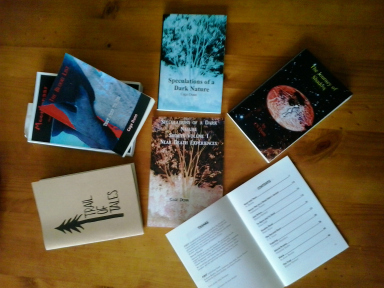


November 12, 2016
Being Prepared for the Season of . . .
This is Australia. Almost summer. Hot, dry winds roar across the country. There are sounds that come with that season: the crackles of dry leaves as they fly through the air – with wings of red flame; the hiss and sizzle of the fruit tree, fully green, as it melts in the heat surge that comes before the flames – already dead before it burns; the scream in my head when I remember . . .
Ash Wednesday. The warnings came over the airwaves of someone else’s radio. The hair on the back of my neck stood up and froze in the stiffness of fear. Where were the kids? Where was the fire front? Where did I leave my bag? Keys? Where are the keys?
I have to get back, you see. It’s my job to drive the water truck in that region. I should be there. The kids, my fosters, should know the plan. They should, but . . .
That maniac driving the wrong way, too fast, swerving and leaning on the horn to get you out of the way – that’s me, trying to get back home, to get the kids out of the risk zone, to get to the fire truck so I can do what needs to be done.
But there’s no way through – police road blocks – no detours – roads burning, not just trees – they don’t listen to me – go back, nothing you can do now – too late.
Do I listen? No. My kids are up there, somewhere in those flames. I have to get there. If I can’t get through to my station, I’ll head on over to the one in the next valley. I know the back roads, the tracks through the forest.
I make it – ask the radio operator to call my kids – no response by radio and she won’t take a chance on a second call while there’s so much chaos with this huge fire raging too fast, doing things fires don’t do. She asks: we’re short a driver – wanna take it?
I do. If I can’t get through to my own, I’ll do this – we practice together, knowing fires in this region can spread too fast through the dry-land forest, that we’ll have to back up to each other when things go bad.
So busy, can’t think on the kids. Have to trust they followed the plan. I hear the radio words – Plan A out the window; they wouldn’t get through that way, no safety in Plan A. More news as I drive the truck from water collection to feet on the ground: Plan B location out of action, burned to the ground, no survivors.
There are no tears, no thoughts of loss or injury – keep moving, keep going, do this, do that. When it’s finished, deal with it then.
More words, more news. The truck – hey, that’s my number! – burned out, four dead . . . my friends, my truck, my number. That would have been me if . . .
No affect. Blank on the inside, blank on the outside. Sideways looks from the faces that run hither and thither. They don’t have time to say anything, ask, help. Later, when there’s time.
What’s that lump over there? With smoke? Pull over, check it out while the blokes on the ground do their spray to keep the flames away.
The charred remains belong to a human – man or woman? Unknown, too damaged. Mark the spot – right here, where they tried to get inside the storm drain. Was he or she dead before the flames came? Don’t think about it. Not yet. Go! More work to do, the fires still moving, there are still people we can get. Move, move, MOVE!
– – – Two days of no sleep, not enough fluids, not enough food. The flames, not under control, but at least out of the way of human habitation. Time to take stock, consider the cost, find the kids.
Plan A and B locations weren’t viable. There was always a backup plan to the plan, and always a backup plan to the backup plan. Did I do the same for the fire plan? Was there a Plan C? And what would they do if they heard about my truck? Would they think I was dead?
Stop. Find out if the house is still there. I may be worrying about nothing. Beg a lift back to my car, drive home.
I’m sure this is the right road, but there’s nothing familiar. The house should be there, 200m up from the dam – the now black dam, filled with ash and soot and bloaties.
No house. No shed. No bones in the blackness where they should be. No signs of vehicles, not even the 1928 Ford tray truck that was in the shed, being worked on by the boys.
Nothing. The shoulders slump. The body sags. Something happens in the words swirling around in the head: it’s a scream – one word: nnnnnnnoooooooooo . . .
Was it a few minutes or a few hours later? Don’t know. Stand up, dust off, get back in the car. Drive to locations for Plan A and B. Burned out. Nothing. Had to show my ID to the cops guarding the area against thieves. Bloody hell! Looters! Shoot them!
Stop and think about what Plan C would have been. Should have been more vigilant – I was in the volunteers, after all; I knew how important it was.
Something clicks. Plan C? Oh, yes – there.
It took ages with all the sticky-beak traffic coming out to stare at the blackness, the trees that weren’t, the bloaties. Did someone go back for the culvert body? I can’t go back, I can’t get distracted. I wrote it up, someone else would have to go get him or her. I have to get to the kids.
Finally, two and a half days after the first panicked flight from work to the hills, and I see the oldest boy handing out clothes and cups to the others at the roadside truck stop. The final plan. They’re here. I can’t see. My eyes burn and gush. I stop the car, get out, run the rest of the way, screaming and laughing.
A few minutes, shock and relief and something else that is indescribable as we all hug each other in a manic group of sounds that make no sense. We sit in the dirt to tell our tales. I learn how they had their lives planned to make it look as if I was still there, still the leader of our little group of lostlings, so they could stay together as a family.
I am so proud.
***
Please prepare your bushfire plan and the backup and the backup to the backup, and maybe a backup to that one as well. This post is copyright CS Dunn 2016.


November 10, 2016
A Dragon Dream
(copyright Cage Dunn 2016)
Chapter 0
A scream shattered the desert sounds of silence; high-pitched, edged with infantile petulance and impatience, undertones of barely restrained arrogance and rage as red and black and orange as a volcanic eruption – but more dangerous. The sound brought his attention back to his task. Kaleanae didn’t have time to ponder his one-ness, or why he was, or where he was. Not while the battle for control of the mirror raged in this no-where place in this no-when moment with an enemy who understood the between spaces better than any other being.
The desert breeze eddied sand and dust over the hump-shaped object in the middle of one of many large depressions in the centre of the Sea of Sand. The outer layers of the lump, once shiny gold and platinum white and silver titanium, were dusted to dull powdery ochre-red. The shape and size of the thing underneath was indiscernible to a human eye; sand filled in the edges and sank it down until the only section visible was in the vague shape of the head of a lion – and a sound that came from the wind that sang through the feather-like scales, wrapped so tightly against the metal skin. A whistle sound, like a kettle or a steam-still, a constant irritant to any who came near. None did, not more than once.
The clouds from the ocean, hundreds of milmetris to the south and east, didn’t survive this far over the hot land. People didn’t travel this way – no grass, no water, no reason. Unless they wanted to meet ‘the beast’ of the desert; take their chances, show their bravery. So far, none had come close enough to touch his hide. Some had come to the edges of the depression, but at the first touch of his voice they fled – often screaming, always running.
At this moment, Kaleanae wouldn’t have noticed if an army stood in the desert that surrounded him, nor if anyone waited at his head to speak; nor would he hear a volcano erupt. He was busy, completely focussed on the task of keeping his new world safe. He must ensure the solidity of the mirror-portal; keep it closed, impenetrable from the other side.
But it wasn’t stable; something knocked from the other side, something persistent and powerful.
The mirror shivered like the disturbed surface of a still pond after a rock was thrown into the centre – a big rock, big disturbances that lapped at the edges and decayed the equivariant homology of the hexagonal conjunction for the seal. A seal so tight, so dense it should have been inviolate. The densest packing of regular geomics possible on this scale.
Kaleanae waited until it settled back to a smooth veneer before he went to work on the interlocking bridge of electron surges to conix-structures that bonded the helical wavelengths and photon interactions, and so sealed the mirror surface. As much as a gravitrant surfactant could seal.
The people here called it magic, but to him it was energy, a powerful source of energy that connected two realms, two different universes; a parallel dimension separated by one petit-ion marker. Not a hole, not a tunnel, but a moment of incongruence, of the clash between two dimensions at the one point through time as the fourth dimensive. This needle locked to a specific ‘other’ point, stable in the way most things were not stable, and he considered – with due diligence based on his research of the known facts, and direct knowledge that this side was barred by the complexities of so many different refractions of light-ray particles in so many spectrums – it should be impossible to breach his security. Impossible.
So why was he so disconcerted?
The mirror rippled again. They were on the other side, and doing things that destabilised the door and the lock. He knew who the intruders were, was absolutely certain it was them, and if a monster like the guildenbeast named Kaleanae could feel fear, that’s what he felt in the skitter of thoughts that told him to run and hide, to disappear, to un-be when they came through.
The laughter in his mind came from Shadow.
“Afraid, are we? Afraid of the dark, or the light? Afraid of what comes? Of your maker?”
Of course, it wasn’t Shadow herself saying these things; it was Kaleanae imagining what she would say about the monster and his ability to fear. She didn’t know of her power of the dark and light yet, not truly. One day she would . . .
“The monster created to bring fear and chaos and un-being to intelligent sentient beings is afraid of his master creators.”
Yes. He was afraid. Not just afraid. Terrified. Everything he knew, every piece of information in his data storage libraries came from them. He once believed the information to be a complete knowledge of their race, but now . . . what he knew was nothing compared to what they left out, what he didn’t know. His repository of their knowledge was limited to the minds that deposited the data – soldiers, strategists, souls who didn’t think as intellectuals or scientists or mathematicians, beings who didn’t create or make or seek for knowledge. Destroyers; he had the knowledge of destroyers. It wasn’t enough.
There were blank spaces where they didn’t put words in or explain meaning because it was common knowledge. To them. Not to Kaleanae. He didn’t have those words, that knowledge. He saw when they used a piece of something that should have had more detail, but was no more than the outer shell of the knowledge. The lack would tell, eventually, and if the mirror-portal destabilised even one percent more, it would be soon. He was afraid. Very afraid.
They were coming. He had no doubts about that certainty, even without data. This world and the living beings in it would end; even he didn’t have the knowledge to stop them. They would all die. Kaleanae would be unmade. Dragons would cease to exist in all times, in all planes, removed from all memories, from all worlds.
And a fear more profound than his own death, existed for Kaleanae’s creations, the children of his soul; they would die; worse, if the creators knew who they were and how they came to be.
Did he care if the dragons died? No. He was not considered worthy to be of their clique; he was a beast. To be feared and guarded against, but not a part of . . . anything.
Only Shadow and the knowledge she would return to his side at the slide of the next dark moon brought him some ease. Until then . . .
***
Next Friday – Chapter 1. Then you have to wait for completion (end Dec 2016).


November 9, 2016
A Hollow
Or is that shallow? Man (no, not politics! No.) who stands there and tells us what life should be – what he will make of our lives. His hand primps at his sewn-in hair, and slides over his zillion-dollar suit.
Salesman? Politician? It’s all the same really; someone wants us to follow their dream, make us slaves to their vision, fill their pockets with money that once sat in another pocket (those words about money making the world go round as we go without [dental work, food, sewn-in hair, super-duper suits, etc.]).
This isn’t about politics – it’s about seeing through the people who know how to press our buttons, who lean us this way and that to get us in the right position to benefit them (and then toss us to the sharks when they’re done). And it’s not always a man – women can be as callous and heartless in this endeavour. I’ve seen it, you’ve seen it – we know these people.
It’s about seeing the value of your own thoughts and visions, your own dreams of . . . [you fill that in – my dreams are mine, yours belong only to you].
The only reason cons have any sway at all is because we allow it – we believe them, and follow their reasoning (flawed, usually understood only once our pockets are of no further use/value) to the gates they show us in the glossy brochure. We sort of know the gates probably don’t really exist, don’t we?
What happened to self-belief? Or the concept of self-value? The course of a mind with a thought that isn’t influenced by rhetoric? (the art of persuasion.) Where is our self-confidence?
An answer? It’s been knocked out of us by the systems of education. In all countries. If they wanted people who knew their own minds, they’d make sure they got sent to [insert the most expensive places here, affordable to only the mega-wealthy (they do occasional freeby places for people they want to use)], and the rest of the populace is used to prop up the system that already exists. Don’t just yell at me here, go out and see the curriculum, show me where it helps students think beyond the moment, beyond a life of drudgery supporting the [business] economy. Where does it align with the values of the places like [you know them, you research their curriculum – see the differences]?
Education of the masses creates: consumers.
Consumerism is the ‘ism’ of this time of the world. If companies don’t get bigger, they are designated as failures; if people don’t spend more each year, they are designated as [is it undemocratic, unpatriotic, un-everything (people MUST spend, or the economy dies)] failures; if individuals in business do too well and don’t go up the rung (listed, bought out, humungified), they are designated as failures (and undemocratic, etc.).
We don’t need to be this way – we don’t need to primp and pander and puff up; nor do we need to believe the words spouted by the biggest heads of steam.
Step back, see the value in the small things, think for yourself, move under your own steam – stop the cons at the first ‘flash’ word (which means you have to use your mind to recognise their use of language).
Live your own life, with the rules that apply moral standards (and I don’t mean religion) to the interactions of the members of your community. Be.

I no longer support a multinational tobacco company by giving them all my money to feed a legal addiction.






